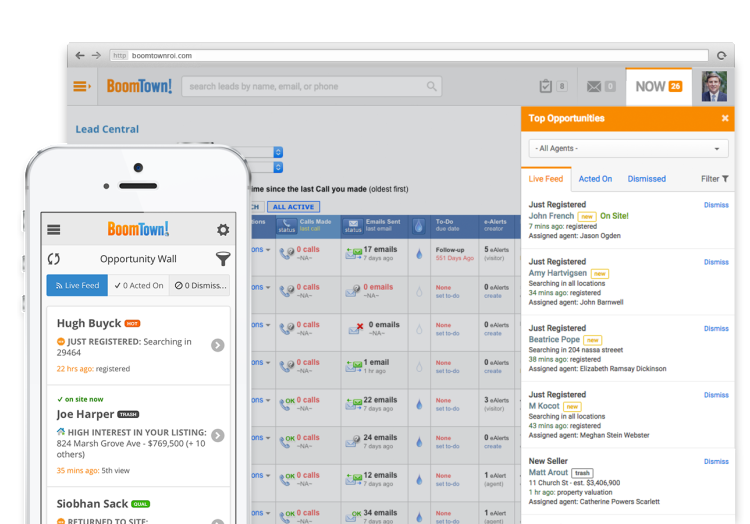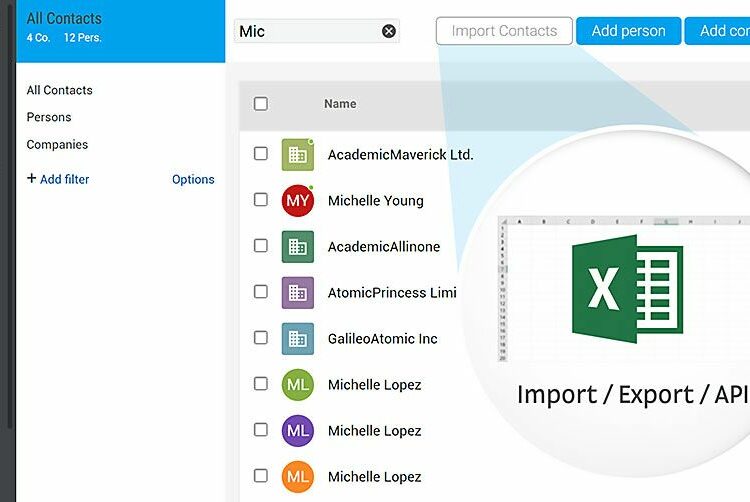In a world where customer relationships are the lifeblood of any successful business, finding the best CRM app can be a daunting task. With countless options vying for your attention, choosing the best CRM app for your small business requires careful consideration of features, ease of use, and budget.
Toc
Customer Relationship Management (CRM) software is crucial for small businesses looking to manage their interactions with customers effectively. The right CRM app can revolutionize how you engage with your clients, streamline your processes, and ultimately drive growth.
Benefits of Using a CRM for Small Businesses
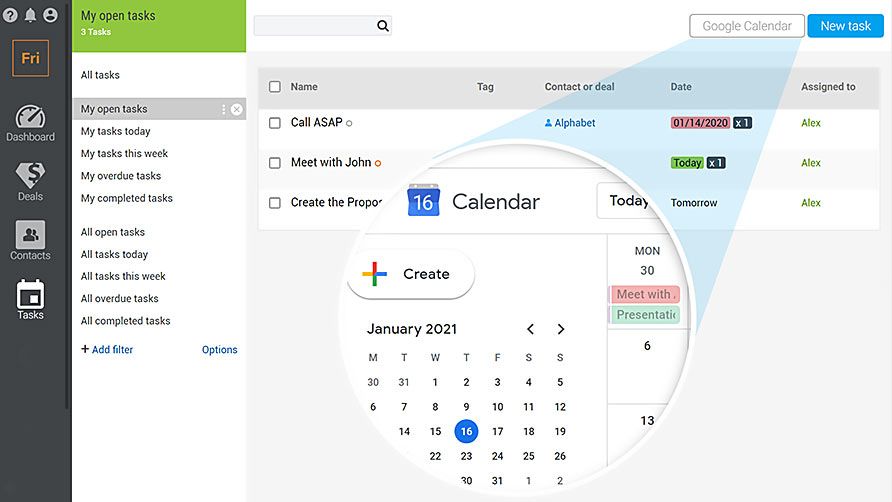
Improved Customer Relationships and Retention
A robust CRM allows you to meticulously track every customer interaction, preferences, and history, allowing for personalized communication that strengthens relationships. For example, a small bakery using a CRM could segment customers based on their purchase history. They could then send targeted promotions to loyal customers who frequently buy pastries while offering special discounts to new customers to encourage repeat business. This personalized approach fosters stronger relationships and increases customer retention. However, some argue that excessive data collection and targeted messaging can be intrusive and alienate customers.
Streamlined Sales Processes and Increased Win Rates
Sales automation tools streamline your workflows by automating lead scoring, email sequences, and deal tracking. This can significantly enhance your sales team’s efficiency and help you close more deals. Additionally, sales automation tools can also help businesses qualify leads more effectively. By automatically scoring leads based on their interactions and behavior, sales teams can prioritize their efforts on prospects who are most likely to convert. This saves valuable time and resources, allowing salespeople to focus on closing deals. While automation can enhance efficiency, some argue that it can also lead to impersonal interactions and a loss of human touch.
Enhanced Communication and Collaboration
Enhanced communication and collaboration are vital components that a CRM system can greatly improve within a small business. By centralizing customer information and communication history in one platform, team members can easily access consistent and up-to-date data. This seamless sharing of information ensures that everyone is on the same page, reducing the chances of miscommunication or missed opportunities. For example, if a customer service representative fields a support call, they can immediately see any recent interactions that the sales team had with the customer, allowing for a more informed and cohesive response. Furthermore, CRM platforms often include collaborative tools such as document sharing and team messaging, which can facilitate a more integrated approach to customer management. While these features can enhance internal communication, some critics note that over-reliance on digital collaboration tools may diminish face-to-face interactions and personal relationships within the team.
Automated Tasks and Increased Team Productivity
Automating routine tasks such as data entry, reminders, and follow-up emails allows your team to focus on high-impact activities rather than spending time on repetitive chores. Automation helps ensure that critical actions do not slip through the cracks by setting up notifications and reminders for follow-ups, meetings, and deadlines. This boosts overall productivity by freeing up valuable time for creativity, problem-solving, and building customer relationships. For instance, a real estate agency can streamline its process by automating appointment scheduling and follow-up emails with prospective clients, allowing agents to concentrate more on negotiations and closing deals. Although automation can vastly increase productivity, it’s important to balance it with personalized interaction to maintain a personal connection with customers. Finding this balance is key to leveraging CRM tools effectively for enhancing team productivity.
Data-Driven Insights for Better Decision-Making
With analytics and reporting features, a CRM provides valuable insights into customer behavior and sales performance. For instance, a CRM can track the effectiveness of different marketing campaigns. By analyzing data on open rates, click-through rates, and conversions, businesses can identify which campaigns are performing well and adjust their strategies accordingly. This data-driven approach helps optimize marketing efforts and maximize return on investment.
Key Features to Consider in a CRM App
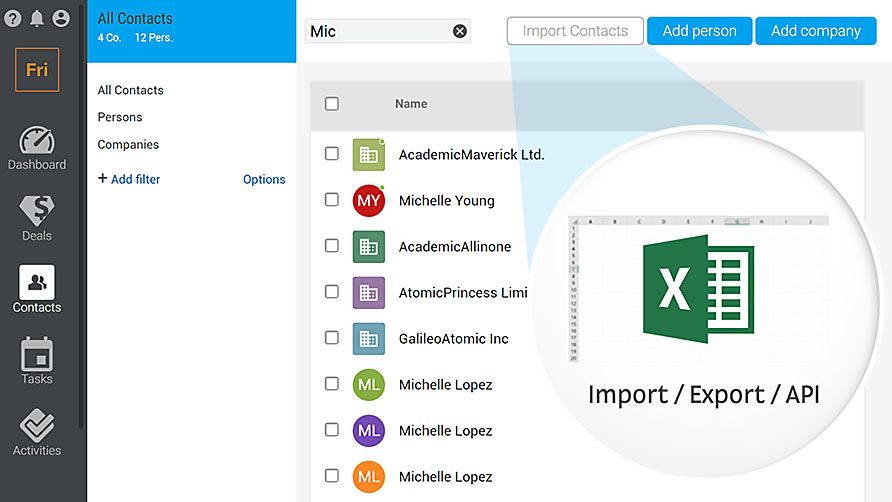
When searching for the best CRM app for your small business, consider the following essential features:
Contact Management
Effective contact management is the backbone of any Customer Relationship Management (CRM) system. It involves the systematic organization of customer information to enhance relationships and improve communication. Look for features that allow for detailed profiles, which can include demographic information, purchase history, and preferences. Additionally, ensure the system supports contact segmentation, enabling you to group contacts based on various criteria such as behavior or demographics. Comprehensive tracking of customer interactions is also essential; this allows you to maintain a detailed history of communications, meetings, and follow-ups. Together, these features ensure you can tailor your communication strategies effectively, fostering deeper relationships with your customers.
Sales Automation
Sales automation tools are designed to streamline your workflows by automating repetitive tasks. This includes lead scoring, which helps prioritize potential customers based on their likelihood to convert, and email sequences that facilitate consistent communication with leads. Deal tracking features allow your sales team to monitor the progress of each opportunity, ensuring no deal slips through the cracks. By automating these processes, your sales team’s efficiency can significantly improve, freeing up time to focus on building relationships and closing more deals. Ultimately, this leads to increased sales productivity and higher revenue generation for your business.
Marketing Automation
A robust CRM should also encompass marketing automation features that are instrumental in improving lead generation and nurturing campaigns. These capabilities may include advanced email marketing tools that allow for personalized messaging and segmentation. Integrating social media channels into your marketing strategy can amplify your outreach and engagement, while campaign analytics provide insights into the effectiveness of your marketing efforts. Look for CRMs that offer tools to create and manage multi-channel campaigns, allowing you to track customer interactions across various platforms and make data-driven adjustments to optimize results.
Reporting and Analytics
In today’s data-driven environment, insights derived from data are vital for making informed business decisions. Choose a CRM that offers customizable reports, enabling you to generate insights tailored to your specific needs. Dashboards should be intuitive, providing a snapshot of key metrics at a glance. Performance tracking is crucial as it helps you evaluate your strategies over time, identifying areas for improvement and recognizing successful initiatives. The ability to analyze trends and customer behavior can inform your marketing and sales strategies, ultimately contributing to an increase in overall effectiveness.
Mobile Accessibility
In today’s fast-paced business environment, having mobile access to your CRM is not just a luxury; it’s essential. Look for apps that offer real-time data synchronization, ensuring that your team has access to the latest information no matter where they are. Offline access is also beneficial for field representatives who may not always have internet connectivity. Additionally, mobile-optimized interfaces enhance usability, allowing for on-the-go productivity and the ability to manage tasks effectively from anywhere. This flexibility can lead to quicker responses and improved customer service.
Integrations
Seamless integration with other business tools is crucial for maximizing your CRM’s potential. Ensure the app you choose can easily connect with a variety of platforms, such as email marketing tools, accounting software, and social media channels. These integrations allow for a unified approach to customer management, enhancing data consistency across your organization. With a fully integrated system, you can leverage data from different sources, providing a holistic view of customer interactions and improving your overall efficiency. This interconnectedness can empower your team to deliver better service and drive business growth.
Top CRM Apps for Small Businesses
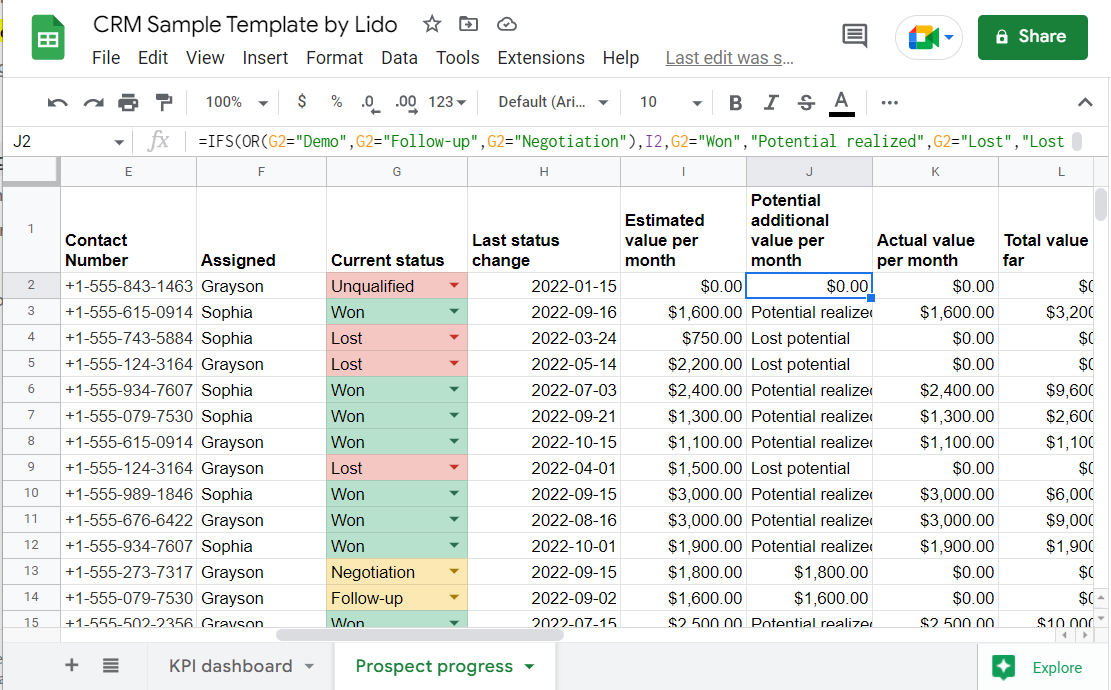
1. https://chosloughi.org/mmoga-the-best-crm-for-financial-advisors-a-comprehensive-guide
2. https://chosloughi.org/mmoga-the-best-minors-for-computer-science-a-guide-for-prospective-students
5. https://chosloughi.org/mmoga-unlock-incredible-lenovo-laptop-deals-on-sale-for-back-to-school-season
Here’s a closer look at some of the best CRM apps available in 2024 that can cater to the needs of small businesses:
HubSpot CRM: A Comprehensive Solution for Small Businesses
HubSpot CRM is often hailed as one of the best CRM apps due to its intuitive interface and comprehensive features. It offers a generous free plan that includes essential functionalities like contact management, deal tracking, and basic email marketing automation.
One of HubSpot’s standout features is its AI-powered insights, which help identify sales opportunities and optimize marketing efforts. The mobile app ensures you can manage customer relationships on the go, making it a versatile choice for busy entrepreneurs.
Zoho CRM: Comprehensive and Customizable
Zoho CRM is another strong contender in the realm of small business CRMs. Known for its extensive range of features, Zoho offers everything from contact management to sales and marketing automation.
What sets Zoho CRM apart is its exceptional customization capabilities, allowing businesses to tailor the platform to their unique processes. The affordable pricing plans and seamless integration with other Zoho applications make it an excellent choice for businesses looking for a scalable solution.
Freshsales: Intuitive and Efficient
Freshsales is designed with simplicity in mind, making it one of the best CRM apps for small businesses that prioritize ease of use. This cloud-based platform enhances customer engagement through features like call recording, task management, and offline access via its mobile app.
Freshsales also offers competitive pricing plans that cater to various budgets, along with integrations with other Freshworks products, such as Freshdesk for customer support, which helps create a cohesive operational ecosystem.
Pipedrive: Deal-Focused and Customizable
If your business has a strong sales focus, Pipedrive might be the best CRM app for you. This solution emphasizes deal management, providing a visually appealing pipeline view that allows you to track your sales process effectively.
Pipedrive’s mobile app enables your team to manage deals and update customer information on the go. Its customization capabilities and integration with tools like Google Maps and WhatsApp enhance its utility for modern sales teams.
Less Annoying CRM: Simple and Affordable
As the name suggests, Less Annoying CRM aims to provide a straightforward experience for small businesses. Its flat-rate pricing structure and user-friendly interface make it an accessible option for entrepreneurs.
Despite its simplicity, Less Annoying CRM offers essential features like contact management and basic reporting. The mobile app allows you to access your customer data anywhere, making it a solid choice for those seeking a fuss-free CRM solution.
Choosing the Right CRM App for Your Business
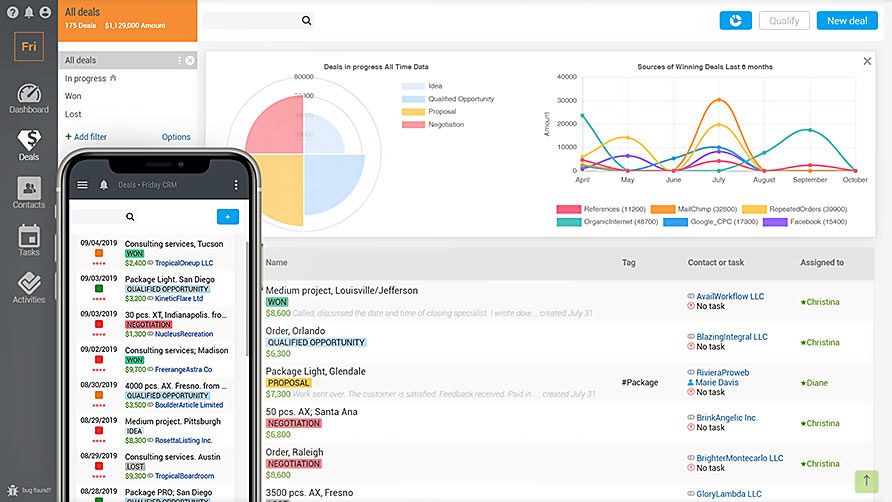
Selecting the best CRM app for your business involves careful consideration of several factors:
Budget
Evaluate how much you can spend on a CRM solution. While some platforms offer free versions, others may require monthly or annual subscriptions. Finding an option that fits your budget is crucial.
Features
Identify the key features your business needs, such as contact management, sales automation, or email integration. Prioritize these features to select a CRM app that meets your specific requirements.
Ease of Use
Opt for a CRM app with an intuitive interface that your team can quickly adapt to. A complex system can hinder productivity, so look for platforms that require minimal training.
Scalability
As your business grows, your CRM should grow with it. Choose an app that offers flexible pricing, additional features, and the ability to add users as your company expands.
Data Privacy and Security
It is also crucial to consider data privacy and security when selecting a CRM app. Ensure the platform adheres to industry standards and regulations, such as GDPR and CCPA, to protect sensitive customer information.
2. https://chosloughi.org/mmoga-the-best-minors-for-computer-science-a-guide-for-prospective-students
4. https://chosloughi.org/mmoga-unlock-incredible-lenovo-laptop-deals-on-sale-for-back-to-school-season
5. https://chosloughi.org/mmoga-the-best-crm-for-financial-advisors-a-comprehensive-guide
Implementing Your CRM App
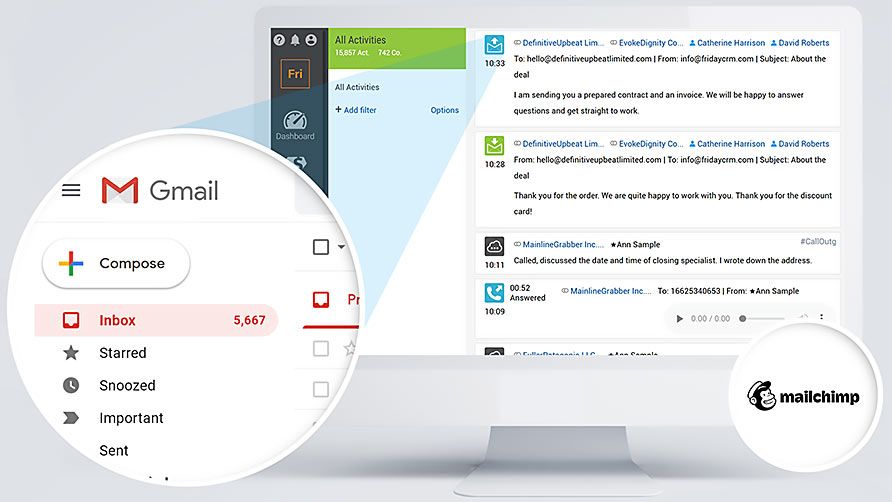
Once you’ve chosen the best CRM app for your small business, effective implementation is key to success. Here are some tips to ensure a smooth transition:
Train Your Team
Comprehensive training is essential for maximizing the potential of your new CRM. Ensure your team understands the features, workflows, and best practices.
Data Migration
Migrating your existing customer data into the CRM is crucial for a seamless transition. Plan the data transfer carefully to ensure accuracy and completeness.
Start Small
Begin by using the CRM for essential tasks like contact management and deal tracking. Gradually introduce more complex features as your team becomes comfortable with the platform.
Monitor and Refine
Continuously monitor your team’s usage and the CRM’s performance. Make adjustments as needed to optimize your processes and ensure the platform delivers the desired results.
Frequently Asked Questions (FAQ)
What is the difference between CRM and ERP software?
CRM software focuses on managing customer interactions and data, while ERP software integrates and manages a company’s core business processes, such as accounting and supply chain management.
How can a CRM app help my small business grow?
A CRM app can enhance your small business by improving customer relationships, streamlining sales processes, automating repetitive tasks, and providing valuable insights for informed decision-making.
What should I look for in a CRM app’s mobile functionality?
When evaluating CRM apps, prioritize features like real-time data synchronization, offline access, and user-friendly mobile interfaces to maintain productivity on the go.
How can I ensure my team adopts the new CRM app?
To encourage successful adoption, provide thorough training, involve your team in the selection process, and regularly gather feedback to foster a culture of continuous improvement.
Conclusion
Choosing the best CRM app for your small business can significantly impact your company’s success by fostering improved customer relationships and more efficient operations. Each business has unique needs and requires careful assessment of available options to ensure the CRM solution aligns with those needs. By considering factors such as budget, features, scalability, and data security, small businesses can select an app that not only meets their current requirements but also scales with their growth. Effective implementation, including thorough training and careful data migration, will further enhance the benefits a CRM brings to your business. By continuously monitoring and refining your CRM usage, you can ensure that it remains a pivotal tool in driving productivity and customer satisfaction.


